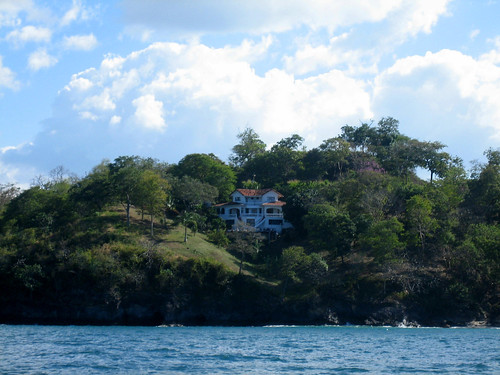Costa Rica has been attracting the attention of tourists, property investors and retirees for years. It has the largest US expatriate population in Central America and a number of its key ‘purchasing destinations’ have evolved into mature second home markets. Activity slowed considerably during the global economic crisis with property prices falling from their highs, but with a new President at the helm, it looks like the country is emerging from the slump faster than some of its regional neighbors. In fact some market optimists are writing about a ‘second chance’ opportunity to get into the Costa Rica market at pre-boom levels.
One thing is clear; buyers have more negotiating power than they have had in years. So for those interested in leveraging the buyer’s market, here are some tips to get you started.
Objective setting
Having clear investment objectives will help you narrow down the options and locations available to you in Costa Rica. Are you an interested in an ‘early in’ Investment? Are you looking for a lifestyle buy? Is rental income in the short term important to you? Are you thinking about Costa Rica for retirement? Taking the time to answer these questions upfront will help you determine the most profitable investment strategy you should follow.
You’ll also need to think hard about your ideal risk/reward profile. Investment opportunities in Costa Rica lie at different points on a development ‘curve’. In general terms, the options that lie earlier in the curve tend to be located in less developed locations. Here your risks are higher, but so is your potential for short term upside so long as you’re positioned in the ‘path of progress’. At later points on the curve, markets are more established, risks are lower but there may be less potential for rapid growth.
Finding Property
Real Estate in Costa Rica is not managed via a national Multiple Listing System. This means that you can’t walk into a real estate agent’s office, specify what you are looking for and expect to receive a comprehensive list of all property for sale that meets your criteria. There is overlap between listings held by different agencies, but each maintains their own database. This means that if you want to be sure you are seeing all there is to see, there’s really no alternative to setting up property viewings with each agent active in your market. It’s a lot of legwork, but seasoned investors know that’s it’s really the only way to ensure they don’t miss any deals.
Added to the lack of a MLS, it can be hard to get a handle on value in Costa Rica. Like most countries in Central America official statistics on sales and transactions are not published. You’ll be hard pressed to find completely reliable data on market trends, transaction data or information on how long a property has been on the market. This can be frustrating for investors used to getting their hands on this kind of data in other markets.
Online services are slowing improving and adding transparency to the market. One example is Reveal Real Estate, a site tracking asking prices across major real estate developments in Central America. Asking prices are not as good as sales data, but in a world of imperfect data, it’s a useful addition.
Getting a good deal
Buyers are firmly in the driving seat in Costa Rica and it makes sense to use this to your advantage. But don’t get so tempted by ‘discounts’ and ‘incentives’ that you forget to think logically about the question of value. If you’d like to reduce your exposure to downside risk, a good idea is to focus only on completed property (as opposed to off-plan or pre-construction deal) that is built to high standards and located in prime areas. It also makes sense to put in the time to find re-sales – sales form end user to end user – as many are priced significantly below developer-direct pricing.
Due Diligence and Closing
Make sure you hire a competent real estate attorney to represent you during the dud diligence and closing process. Closing documents will be in Spanish so unless you are fluent in legal Spanish, choose an attorney who is fully bilingual. It’s always a good precaution to take out title insurance and a number of US based firms offer policies on Costa Rica property. The process of applying for insurance will require your attorney to dig deeply into the property history and title chain to ensure there are no liens or encumbrances.
It’s exciting times for buyers looking at property in Costa Rica. Inventories are high. Vendors are motivated. If you take the time to research the market you should be able to find opportunities offering the risk/reward balance you are after. Then, if you negotiate hard enough, you may end up with a deal of a lifetime.
 About guest author: Claudia Gonella is co-founder of Reveal Real Estate and writes regularly on the international real estate market in Central America.
About guest author: Claudia Gonella is co-founder of Reveal Real Estate and writes regularly on the international real estate market in Central America.

